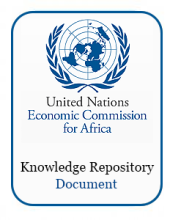Land Library
Welcome to the Land Portal Library. Explore our vast collection of open-access resources (over 74,000) including reports, journal articles, research papers, peer-reviewed publications, legal documents, videos and much more.
/ library resources
Showing items 1 through 9 of 14.The Land Use Consolidation Act (LUC) was introduced in 2008 and is an important
component of agricultural policy in Rwanda. As part of the Government of Rwanda’s
broader Crop Intensification Program (CIP), LUC entails participating farmers
Africa is the fastest urbanizing region in the world, with the population doubling almost every
20 years. The rural population is growing at a rate of 2.5 per cent per annum, while the urban
population is experiencing 5-10 per cent growth per annum. Urbanization becomes a source
The first Meeting of the Advisory Board on Population, Agriculture and Environment was held in the United Nations Conference Center (UNCC), Addis Ababa, Ethiopia, from 20-21 September 1999. The Meeting was formally opened by Ms. P. K.
Food insecurity is expected to accelerate substantially in sub-Saharan Africa where available evidence suggests that environmental degradation such as soil erosion, desertification and deforestation is seriously depend for increasing their agricultural productivity.
This paper reports the findings of an in-depth case study of a highly densely populated area in the Northwest of Rwanda
which has been conducted during the period 1988-1993. It
demonstrates that acute competition for land in a context
Habitat: United Nations Conference of Human Settlements, held in Vancouver in 1976, recommended that 'A national policy for human settlements and the environments should be an integral part of any national economic and social development policy.
La planification du développement dans les pays africains était au départ(années 50 - début des années 70) perdue et conçue essentiellement comme une planification macro-économique.
Earlier (1950s - early 1970s) development planning in African countries was essentially perceived and conceived as macro-economic planning.
La majorité des populations urbaines dans la plupart des pays africains ne disposent que de faibles revenus et ne peuvent se permettre les fortes défenses en capital nécessaires à l'acquisition d'un logement.



